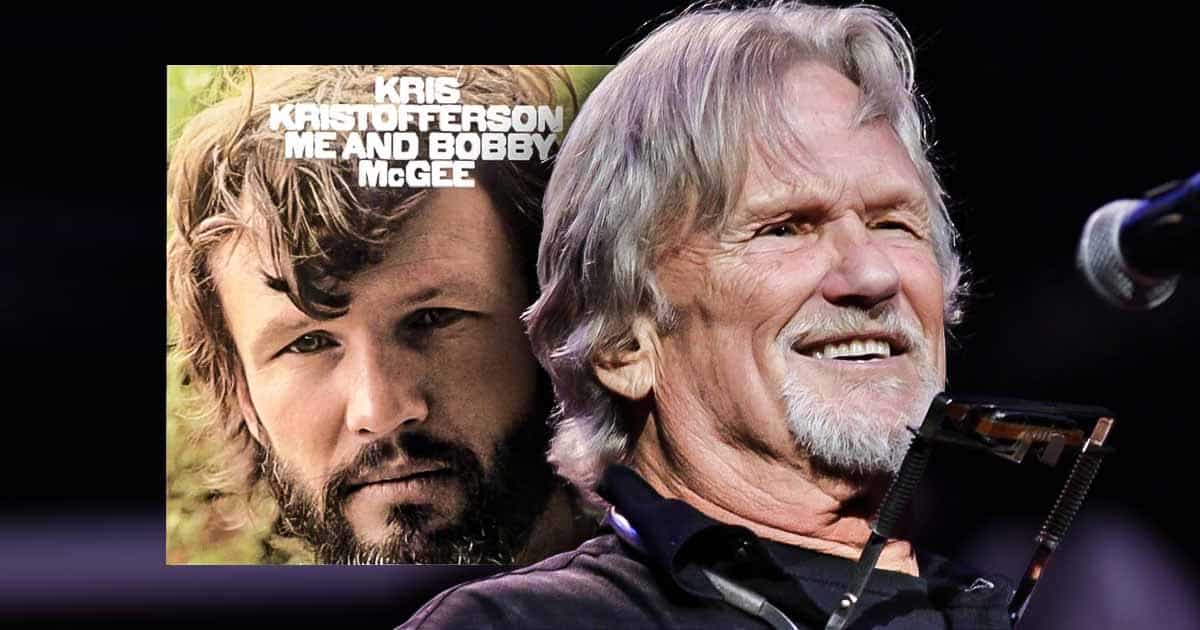Think you know “Me and Bobby McGee”? It’s not just a road song, and it’s definitely not just a love song. Kris Kristofferson’s “Me and Bobby McGee” is about more than that—it’s a masterwork confronting the tug-of-war between freedom and love. While Janis Joplin’s version may have made it famous, the real story behind the song runs much deeper, involving a playful conversation and Kristofferson’s unique ability to weave personal stories into universal truths.

The True Story Behind Me and Bobby McGee
The idea for “Me and Bobby McGee” didn’t begin with Kristofferson. According to The Tennessean, the inspiration for the song came from Fred Foster, a legendary producer and the man responsible for launching the careers of artists like Dolly Parton and Roy Orbison. Foster came up with the idea while teasing a secretary named Barbara “Bobbie” McKee, who worked in the same Nashville office. In a playful exchange, Foster said, “I’m going to write a song about me and Bobbie McKee.” When he passed the idea to Kristofferson, the Texas-born songwriter transformed the joke into something more profound.
Kristofferson changed McKee to McGee and turned it into a story about two drifters who find a fleeting connection on the open road. It wasn’t a love song in the traditional sense—it was a song about the painful realization that freedom often comes at the cost of love. As Billboard describes, Kristofferson crafted “Me and Bobby McGee” to reflect his experiences, including his sacrifices to pursue a life of music and independence.
In her recounting to The Tennessean, Bobbie McKee, now Barbara Eden, recalled the first time she heard Kristofferson sing the song. “Fred came in and said, ‘I want you to meet the real Bobby McKee, and here’s Kris Kristofferson to sing your song for you,’” she said. “It was the most fantastic thing I had ever heard.”
How Janis Joplin Transformed the Song Into a Hit
While Kristofferson’s version of “Me and Bobby McGee” gained attention on his debut album, Janis Joplin’s blues-infused rendition made the song a chart-topping hit. Recorded just before she died in 1970, Joplin’s performance of the song was included on her posthumous album Pearl. Her gritty voice turned the tender ballad into a rock anthem that resonated with listeners far beyond country music circles.
As Fred Foster recalled to The Tennessean, he had no idea Joplin had even recorded the song until he heard it for the first time: “When she got to the middle part of ‘Me and Bobby McGee,’ and brought it down to sweet and tender, I thought, ‘Man, what a loss,’” he said, reflecting on Joplin’s death and the emotional weight she brought to the song. Joplin’s version soared to No. 1 on the U.S. singles chart in 1971, making it one of the most memorable covers of all time.
But let’s not forget, as Billboard reminds us, that Kristofferson was the heart of the song. His writing captured the raw emotions of love and loss, making it adaptable for artists like Joplin while maintaining its core message. The song wasn’t about one person or moment—it was about the human experience, the struggle between holding on to love and chasing freedom.
Freedom or Love? The Real Meaning of Me and Bobby McGee
At its core, “Me and Bobby McGee” is a song about the high price of freedom. Kristofferson’s lyrics tell the story of two people who share a brief moment of connection before parting ways, their paths forever divided by their desire for something more. The famous line, “Freedom’s just another word for nothing left to lose,” speaks to the song’s heart. It’s not just about finding freedom—it’s about realizing that freedom often comes with the cost of losing everything you hold dear.
Kristofferson, a former Army captain who struggled to break into the music industry, understood that tension firsthand. Billboard notes that his life was filled with tough decisions, leaving behind a stable career and a comfortable life to pursue music. In “Me and Bobby McGee,” Kristofferson poured those experiences into the lyrics, capturing the bittersweet truth that freedom while liberating, can also be lonely.
The open road in the song symbolizes more than just physical travel. It’s a metaphor for the emotional journey of choosing freedom over love. The narrator and Bobby share a moment of intimacy, but in the end, their connection can’t survive the call of the road. Kristofferson’s genius was in his ability to make that moment relatable to anyone who has ever had to let go of something—or someone—they loved.
The Enduring Legacy of Me and Bobby McGee
Even after over fifty years, “Me and Bobby McGee” remains one of American music’s most beloved and covered songs. Kristofferson’s words resonate with audiences because they touch on a universal truth: pursuing freedom often means letting go of what ties us down.
As The Tennessean highlights, Kristofferson’s storytelling still holds up because it taps into the human experience in a real, lived-in, and heartbreakingly honest way. And while Joplin’s version may have cemented its place in rock history, it’s Kristofferson’s ability to write songs that ask the tough questions—about love, loss, and what it means to be truly free—that keeps the song relevant.
So as you listen to “Me and Bobby McGee” in the video below, remember that it’s more than a song about two travelers. It’s about the cost of freedom, our choices, and the things we leave behind on the road to finding ourselves. Kris Kristofferson captured that truth, and it’s why his music continues to speak to new generations of listeners today.